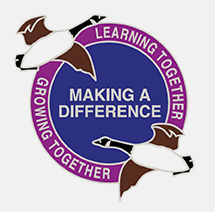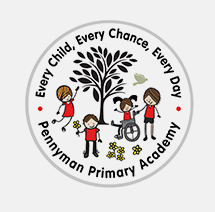Dormanstown Primary Curriculum Overview
Dormanstown Primary is committed to developing each child’s unique potential within an environment where all pupils can thrive and not only reach their best academically, but also develop a thirst for knowledge, a love of learning and be well prepared for their future lives. Dormanstown curriculum provision ensures pupils develop key knowledge in order to know more, do more and understand more over time within subject areas. A focus on the systematic teaching of reading, vocabulary and oracy development ensures a strong reading culture where pupils become highly effective readers, speakers, listeners and wider communicators. Our learning environment is integral in promoting key learning dispositions and values and fulfilling the ‘inspiration, aspiration, collaboration and celebration’ embodied in our school logo. Through the provision of a range of educational experiences, we aim to increase confidence, broaden horizons and increase pupils’ cultural capital. The provision at Dormanstown Primary ensures pupils have the essential knowledge, learning dispositions and key values to embrace the opportunities and challenges they encounter to go out into the world and make a difference to their own lives and that of others.
EYFS Curriculum
Through continuous and enhanced provision, and the direct teaching of knowledge, our curriculum develops each child’s unique characteristics, builds resilience, self-regulation and independence, and increases their knowledge and sense of themselves and the wider world. Clearly defined areas for learning ensure a clear sequence of knowledge from nursery, into reception and in preparation for KS1. The ‘characteristics of effective learning’ are at the heart of our early years curriculum. We recognise communication and language as fundamental skills and the development of spoken language is pivotal in all seven areas of the curriculum, forming the foundations of language and cognitive development. The learning environment within early years is carefully considered and relevant to the learning that is taking place to meet the needs of the children in the nursery and reception cohorts. A coherent long term learning sequence, provides secure foundations for social and academic development in readiness for year 1.
Y1 to Y6 Curriculum
Through an understanding of the science of learning, curriculum plans are clear about which information is most important for pupils to store in their long-term memory. Medium term plans are planned with a clear sequence of learning, ensuring prior knowledge is activated before new learning is introduced. Teachers check pupils understanding systematically, identify misconceptions accurately and provide clear feedback, adapting lessons in light of assessment for learning. Planned opportunities to revisit previously learned knowledge, concepts and procedures through spaced retrieval is in place to support embedding knowledge in pupils’ long-term memory. Foundation subject plans are underpinned with sequencing documents to enable planning to focus on prior knowledge, identification of misconceptions and are centred on ‘key takeaways’ linked to an overarching question. Teaching is delivered through QFT to the whole class, small group and targeted teaching approaches, intervention groups and 1:1 personalised approaches. Learning outcomes are designed in order that we build deep, long lasting knowledge cumulatively.
How we deliver the curriculum
We strive for expert teaching routed in cognitive science and underpinned by; a well-sequenced, knowledge rich curriculum, planning for learning rather than performance and highly effective responsive teaching. This includes how to use spaced retrieval to ensure information is regularly revisited to enable the information to move from the working to the long-term memory. Pupils are encouraged to be independent – drawing on their long-term memory to make meaningful connections to new learning. Teacher knowledge of the science of learning has enabled a deep understanding of the principles of planning. Clear sequences of learning are planned which address and activate prior knowledge, introduce new knowledge in granular steps and make meaningful connections between old and new learning. A responsive teaching approach ensures teachers check pupils understanding systematically, identify misconceptions accurately and provide clear feedback, adapting lessons in light of assessment for learning. Our curriculum plans give pupils the opportunities to activate and build on prior knowledge, drawing this from their long-term memory, to make meaningful connections to new learning. We define progress as the widening and deepening of key knowledge, skills and understanding, which together with the development of key values and learning dispositions leads to success both now and in the future.
High Needs SEND Unit Curriculum
Please see separate page for further information regarding the curriculum in place for the SEND unit provision.
Further Information – If parents would like additional information on the school curriculum then please see the subject and class pages. Academy staff will always provide any further information or answer any questions you may have, please feel free to speak to your child’s teacher or use the contact us area on this website.
-
Tees Valley Education Long Term Curriculum Map Download
-
Tees Valley Education Teaching & Learning Policy Download





